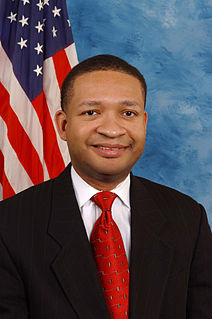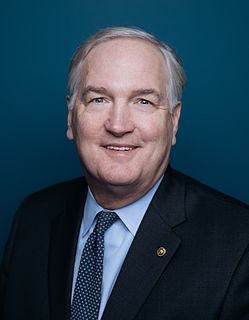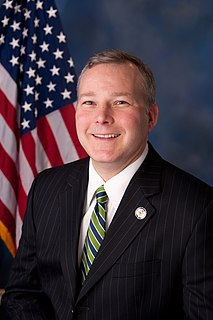A Quote by Mike DeWine
Even beyond policy considerations, Romneycare was a horrible model to suggest for the federal government because the Constitution does not give Congress the power to impose an individual insurance mandate.
Related Quotes
Does the U.S. Constitution stand for anything in an era of government excess? Can that founding document, which is supposed to restrain the power and reach of a centralized federal government, slow down the juggernaut of czars, health insurance overhaul and anything else this administration and Congress wish to do that is not in the Constitution?
The Founding Fathers realized that "the power to tax is the power to destroy," which is why they did not give the Federal government the power to impose an income tax. Needless to say, the Founders would be horrified to know that Americans today give more than a third of their income to the Federal government.
The tenth amendment said the federal government is supposed to only have powers that were explicitly given in the Constitution. I think the federal government's gone way beyond that. The Constitution never said that you could have a Federal Reserve that would have $2.8 trillion in assets. We've gotten out of control.
If the Federal Reserve pursues a policy which Congress or the President believes not to be in the public interest, there is nothing Congress can do to reverse the policy. Nor is there anything the people can do. Such bastions of unaccountable power are undemocratic. The Federal Reserve System must be reformed, so that it is answerable to the elected representatives of the people.
Revealingly, the central function of the Constitution as law--the supreme law--was to impose limitations not on the behavior of ordinary citizens but on the federal government. The government, and those who ran it, were not placed outside the law, but expressly targeted by it. Indeed, the Bill of Rights is little more than a description of the lines that the most powerful political officials are barred from crossing, even if they have the power to do so and even when the majority of citizens might wish them to do so.
Until the 1930s, the Constitution served as a major constraint on federal economic interventionism. The government's powers were understood to be just as the framers intended: few and explicitly enumerated in our founding document and its amendments. Search the Constitution as long as you like, and you will find no specific authority conveyed for the government to spend money on global-warming research, urban mass transit, food stamps, unemployment insurance, Medicaid, or countless other items in the stimulus package and, even without it, in the regular federal budget.
How can you raise the level of consciousness on this? How can you get the federal government to take the responsibility? Florida does not have a foreign policy. This is a federal policy or absence of federal policy. It's so clear that we're not being treated fairly. We have to come up with a solution. It hurts your head trying to figure out what to do.
The Constitution exists precisely so that opinions and judgments, including esthetic and moral judgments about art and literature, can be formed, tested, and expressed. What the Constitution says is that these judgments are for the individual to make, not for the Government to decree, even with the mandate or approval of a majority. Technology expands the capacity to choose; and it denies the potential of this revolution if we assume the Government is best positioned to make these choices for us.
It [the Constitution] didn't break free from the essential constraints that were placed by the founding fathers in the Constitution, at least as it's been interpreted, and the Warren court interpreted it in the same way that generally the Constitution is a charter of negative liberties. It says what the states can't do to you, it says what the federal government can't do to you, but it doesn't say what the federal government or the state government must do on your behalf. And that hasn't shifted.
I believe that the power to declare war is most important in limiting the powers of the national government in regard to the rights of its citizens, but that it does not require Congress to give its approval before the president uses force abroad. I do not believe that the framers of the Constitution understood the power to declare to mean "authorize" or "commence" war. That does not mean that the separation of powers or checks and balances will not work.

































